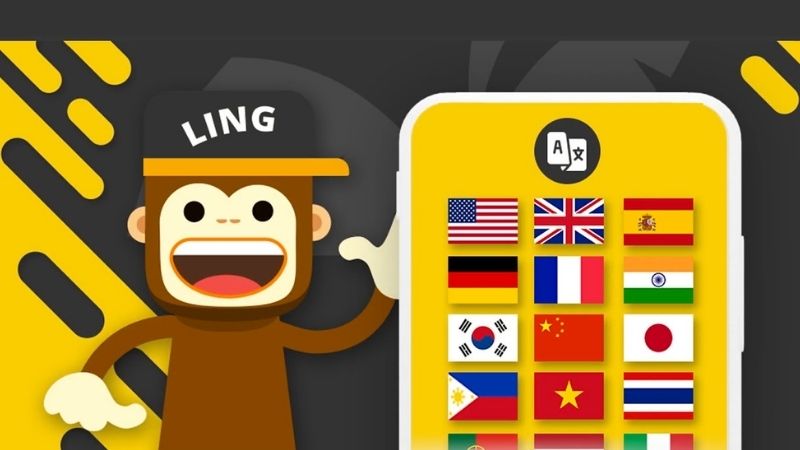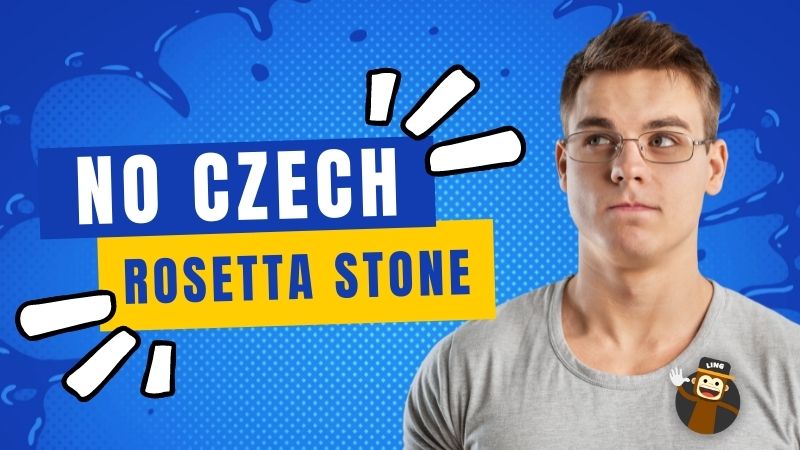Did you know there’s no Czech on Rosetta Stone? The language learning giant has decided to forego the Czech language in favor of bigger languages like Mandarin, Spanish, and English. It makes sense, at least from a business perspective, but we here at Ling believe that every language, no matter how small, deserves its place in the sun.
So what is Ling? Ling is a language learning app that aims to dispense with the old ways of teaching. There’s no waiting in traffic to get to your school, no dog-eared books, no dusty chalkboard and a teacher with a bad hangover from the night before! Ling is easy to use, and you can get your daily fix of language learning in 15 minutes. Bite-size, fun-size Czech language learning. This is learning a language taken to the next level.
What Is Czech?
The Czech language, known in Czech as Čeština, is a West Slavic language spoken mainly in the Czech Republic. Thankfully for learners from an English base, the language is written in the Latin script. Czech has a long and storied history, but the first written examples go back to the 12th century.
Some Interesting Facts About Czech:
- There are 11 million speakers
- Stress is on the first syllable
- There are 7 noun cases
- There are 3 tenses
- There are several dialects, including Moravia and Silesia. The Prague dialect is the official one and the one Ling advocates.

Reasons To Learn Any Language (Not Just Czech)
The same question that was asked for not having Czech in Babbel; there is sadly no Czech in Rosetta Stone too. But what are the issues for not having them on Babbel now? Let’s take a look.
Imbibe The Culture
The only way to really take in a culture is by speaking the language.
The best example is translated books. I have friends who speak multiple languages, for example, English and Russian. They recommend me books translated from Russian to English, and then they can’t understand why I don’t love Tolstoy to the same degree that they do. To put it simply, something is lost in translation. Perhaps it’s an adjective that they think is inappropriate, but most of the time, it’s a whole mood that the language evokes that another language can’t. This comes down to how we perceive languages, and they shape everything from personality to architecture. A famous example is the differences between German and Italian and how their languages seem to match who they are as people.
Neuroplasticity
Countless studies have shown the increased positive effects of speaking 2 languages on brain development and overall health. Among other things, findings have shown a reduced risk of dementia as well as an increased ability to multitask.
Fun
Language learning is not how you remember it. I was quite shy at school, and the idea of speaking in front of a class(especially in a second language) was terrifying to me. Things have changed. Now, you can learn from the privacy of your own home. If you want to reach out to other language learners in a similar community, then it’s up to you if you want to do so.
Another aspect of language learning that teachers in my school failed to consider is that we have ever-shortening attention spans. It isn’t our fault; it’s just the way people are. If something isn’t fun, you’re going to stop listening. Language learning done correctly is a fun experience because personal growth is nothing but a positive experience.
Admiration
Admiration feels good; it’s undeniable. If a native speaker finds out that you’re learning a second language, they will respect you. But more than this, they’ll have even greater respect and admiration if you decide to learn their language. Learning somebody else’s native language is like putting in the time to get to know their family. It shows a great level of personal commitment.
This is my favourite quote about this phenomenon from Nelson Mandela.“If you talk to a man in a language he understands, that goes to his head. If you talk to him in his own language, that goes to his heart.”

Alternatives For Learning Czech – Study With Ling
So now we know there’s no Czech on Rosetta Stone; what can we do about it? The most obvious is YouTube. But you probably thought of that already, right? YouTube is great for practicing your listening and reading (if they have subtitles). It is also invaluable to feel part of a language learning community.
The best overall option undoubtedly is Ling. Perfect for new language learners and seasoned vets, Ling combines the best elements of multiple approaches and fuses them into one application.
Speaking- Practice speaking with our patented chatbot that offers conversation in a natural dialogue.
Listening- All our content is recorded by native speakers. That means no awkward accent. Listening is an essential skill to have and is the building block of other skills.
Reading- We have reading tasks as well as flashcard tasks. There are word jumble games as well as SRS flashcards.
Writing- This is another important skill and gets you thinking more logically about Czech and its word-formation.

Learn More Czech With The Ling App
Ling is with you every step on your new language learning journey, and its sole aim is to improve your language skills. We have an excellent support team working out of Chiang Mai, Thailand, and we’re constantly expanding with new staff and new products. We recently launched Ling Live, a platform that connects native Thai tutors to learners. Keep an eye out for a similar platform in the future for Czech.
This blog is also a great accompaniment. Although there is no dedicated Czech blog at the moment, there will be in due course. Until then, why not read our blogs reviewing other language learning apps like Mango Languages vs. Lingvist and HiNative vs. Pimsleur.
Learning a foreign language has never been this easy.































